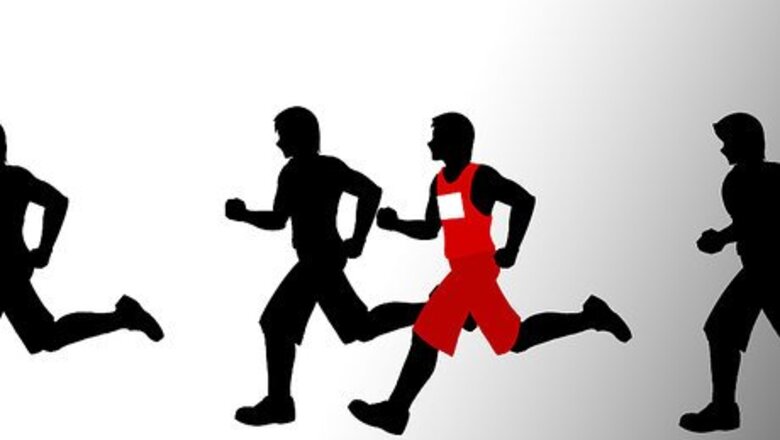
views
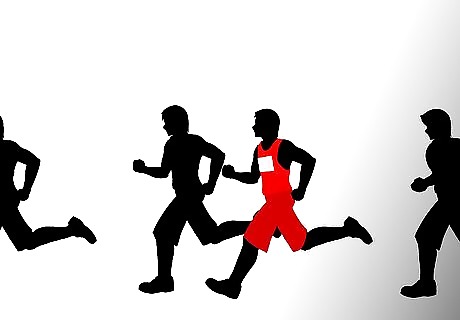
Know your competition and know your pace. When the gun goes off, do NOT sprint your hardest. It may seem tempting to do, especially if others around you are doing it. But this will cause you to burn out quickly, and by the time you reach 400 meters, you'll be burnt out and done for. It doesn't matter how good or experienced you are at running. Keep an even, natural pace. Don't worry, you'll soon pass the others who used up all their energy with the first lap. You see, an 800 meter dash is a pure mix of stamina and speed. You need both if you want to succeed. During the first lap, keep a steady and even pace. Not to fast, but definitely not to slow. When you reach your second lap, pick up the pace about 30%. And when you get to the last 200 meters, push yourself forward and use up any energy you have left. Don't spare one drop. If you haven't used up all your energy in the first lap, then this shouldn't be too difficult, and you'll be able to zip right past the stupid person who sprinted half the way.
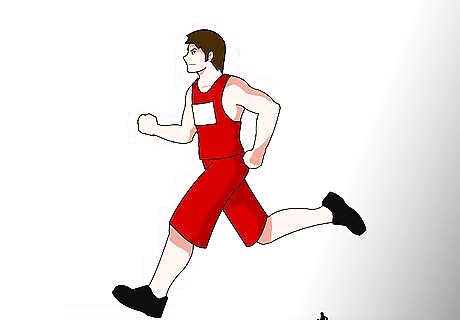
Maintain pace with relaxed form. Once you get in your rhythm for the first 200 meters, try not to slow down, although inevitably you will. Focus point to point (every 100 meter line works, and at the end of the race, 50 meter markers or even 10 meter markers) to work your way around the track.
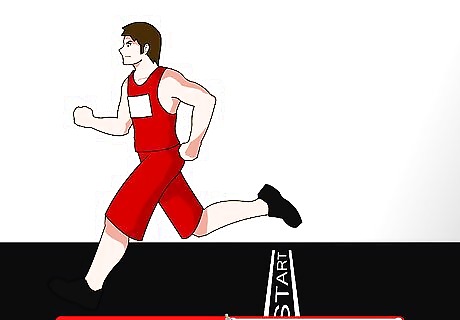
Pay attention to your 400 split and act accordingly. By the time you reach the starting line again you should feel tired, but relaxed. If you can't accelerate after 400 meters (not that you should), you went out too fast. Your 400 split should be NO FASTER than 5 seconds compared to your second 400, and ideally more like 1-2 for the distance runner and 3-4 for the 400/800 runner. If the 400 split is slow, plan to make a strong move at 300 to go in order to maximize passing on the straights.
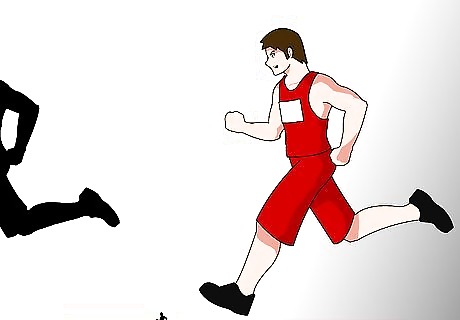
Keep pressure on the gas pedal, but again, keep the shoulders relaxed and focus on good form with 300 to go. This is the time to put yourself into appropriate position for the last 150. Put yourself in a position that you are not boxed in (i.e. have a person directly on your shoulder preventing your moving around a runner slowing). Again, know your race (should I be near the front, did the leaders go out too fast, is this going to be a negatively split race, etc.).
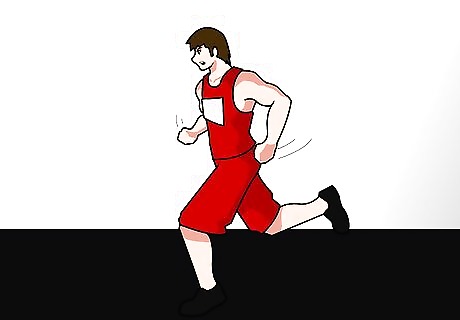
As you make the turn, an elephant will feel as if it jumped on your shoulders as the lactic acid shuts down more and more muscle fibers in your legs. Rock your pelvis forward, make sure your wrists are cocked to make yourself more springy, and focus on really driving that knee forward to compensate. (When on the final sprint focus on your arms and not your legs. Pump your arms faster and your legs will follow. Trust your legs to know how to keep moving.) If you want to decelerate, do so, but most of the time, the person who wins is the one who slows least. Pick your lane, and just continue driving until you crossed the finish line.

Afterwards, make sure you immediately drink a sports drink and consume some carbohydrates to assist in proper recovery. A light jog also helps pump blood, and thus increase removal of the lactic acid from muscles, especially if you are racing again that day. The first hour is the most crucial to recover, just like for lifting.
















Comments
0 comment